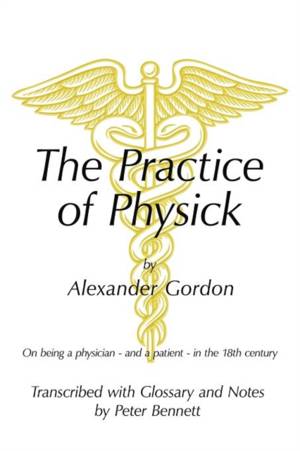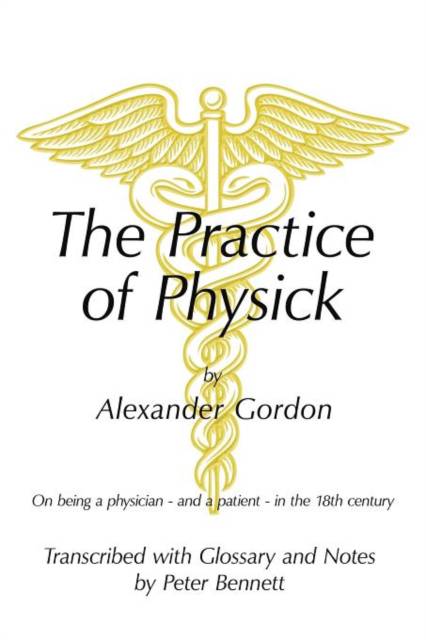
- Retrait gratuit dans votre magasin Club
- 7.000.000 titres dans notre catalogue
- Payer en toute sécurité
- Toujours un magasin près de chez vous
- Retrait gratuit dans votre magasin Club
- 7.000.0000 titres dans notre catalogue
- Payer en toute sécurité
- Toujours un magasin près de chez vous
The Practice of Physick by Alexander Gordon
On Being a Physician - And a Patient - In the 18th Century
Peter Bennett
Livre broché | Anglais
31,95 €
+ 63 points
Description
This remarkable book never got to see the light of day when it was written two centuries ago. Its author, a Georgian doctor produced this examination of 18th century medicine at the same time as publishing an extremely controversial book on infection. Alexander Gordon had proved conclusively that puerperal (child-bed) fever was passed between patients by midwives. The idea met with outrage and hostility and saw him forced to leave his native city of Aberdeen, leaving behind hundreds of carefully penned pages of The Practise of Physick, a near-complete general text of medicine. Incredibly the final page of the original script even stops in mid-sentence as if the writer had fled there and then. Gordon's remarkable unseen work has lain practically untouched ever since. Now painstakingly reworked by Doctor Peter Bennett, himself a medical author of international reputation, it gives a vivid account of medicine in the late 18th century. It was a time of enormous change; the industrial revolution was getting underway, and we were deep in the period of the Enlightenment. The medical profession was alive with new and unsubstantiated theory. Medical dogma that had held sway for two millennia was being challenged but the discoveries of the 19th century were but a speck on the horizon. In the 1790's doctors were still cupping, bleeding and leeching. Medications often contained the highly toxic mercury; Tar Water enjoyed a completely unjustified reputation as a universal remedy; effective drugs were prescribed indiscriminately. The book helps to explain the thinking behind practices which we would now regard as mystifying but were thought of as entirely rational at the time. Gordon's words provide a graphic and colourful account of life as a physician [and as a patient] two centuries ago. Arguably he lost his rightful place alongside the luminaries of medical history. Perhaps the book you hold in your hand will do something finally to redress the balance.
Spécifications
Parties prenantes
- Auteur(s) :
- Editeur:
Contenu
- Nombre de pages :
- 416
- Langue:
- Anglais
Caractéristiques
- EAN:
- 9781456775056
- Date de parution :
- 07-10-11
- Format:
- Livre broché
- Format numérique:
- Trade paperback (VS)
- Dimensions :
- 152 mm x 229 mm
- Poids :
- 607 g

Les avis
Nous publions uniquement les avis qui respectent les conditions requises. Consultez nos conditions pour les avis.






